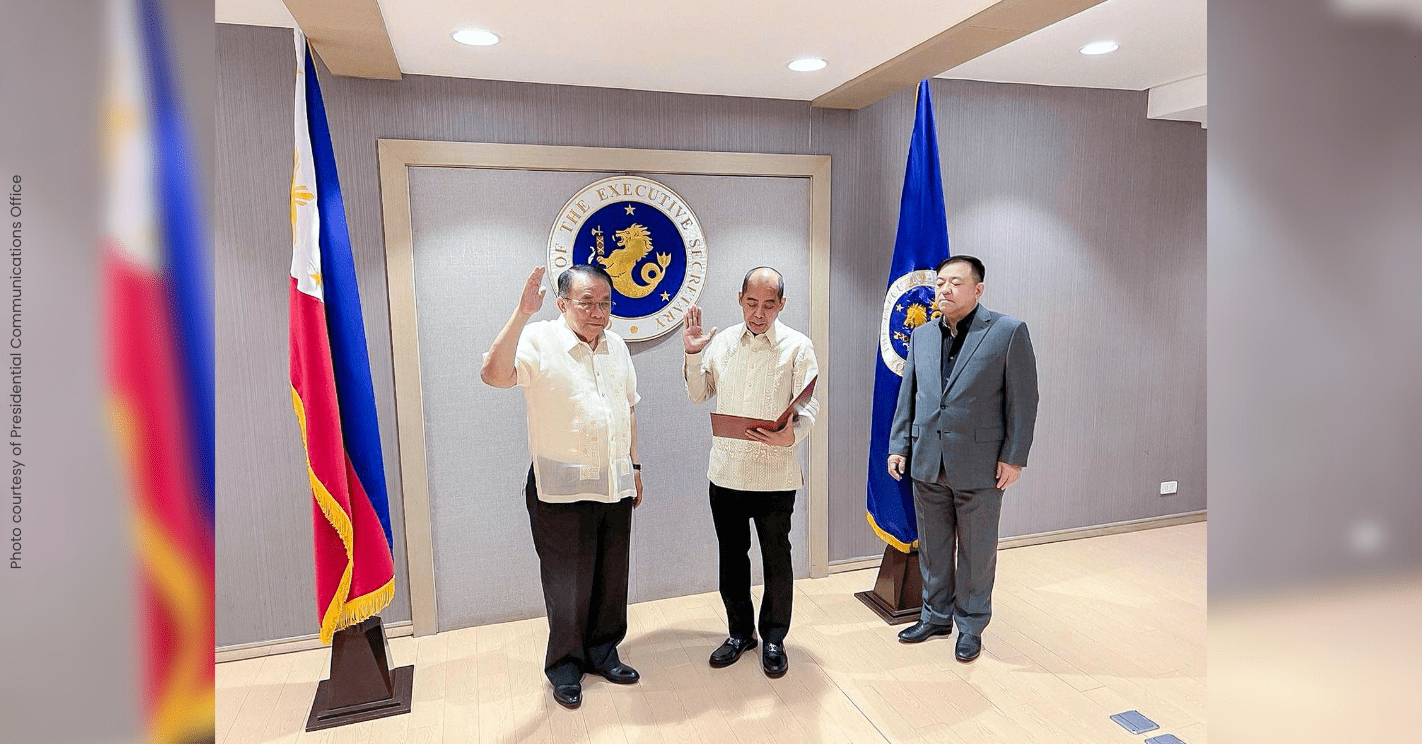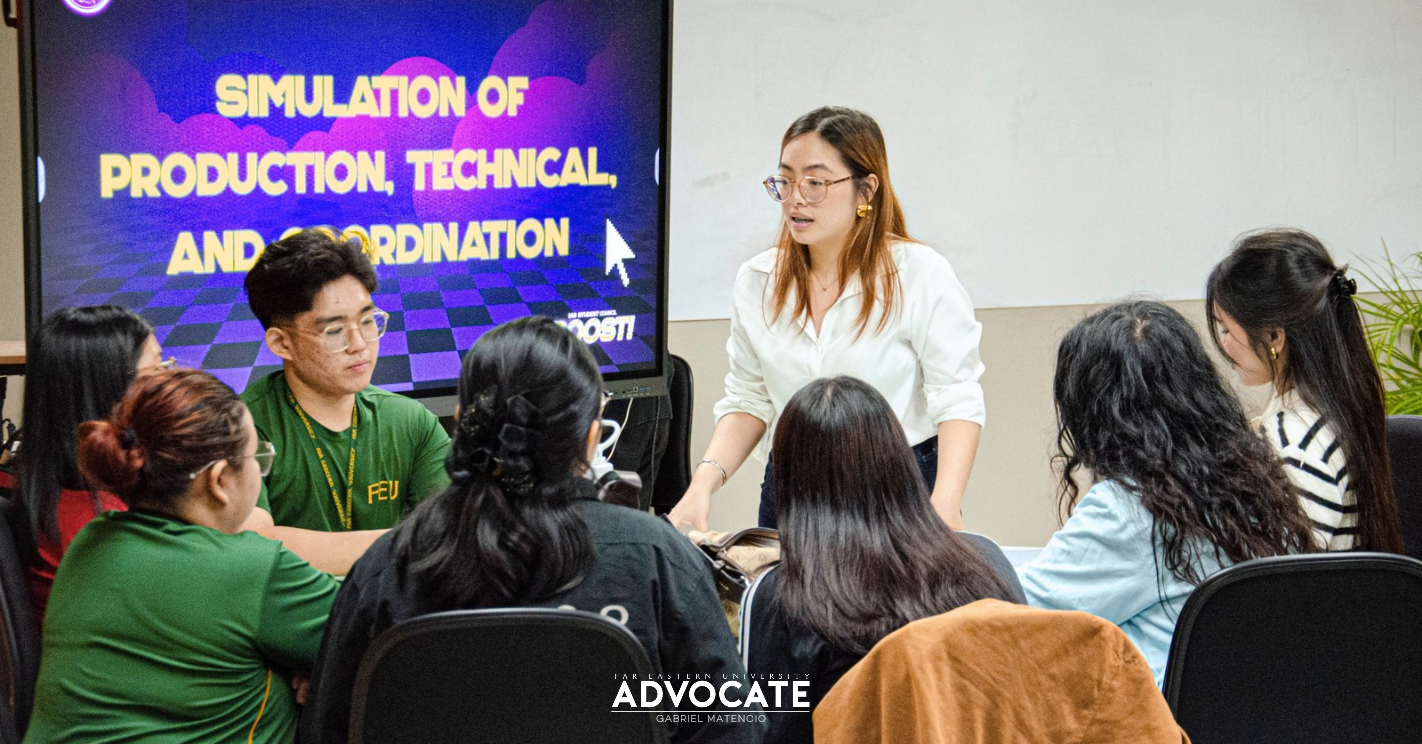
Another Path
- June 22, 2017 19:29
FEU Advocate
October 02, 2025 10:05

By Ishia Eleanor F. Marquez
Far Eastern University (FEU) alumnus Dr. Joemer Maravilla is one of two FEU graduates and faculty included in this year’s list of World’s Top 2% Scientists released by Elsevier last September 19.
Dr. Maravilla currently works as an adjunct professor at the Institute of Nursing and Health Sciences in FEU. Moreover, he is a research fellow at the University of Queensland and the Queensland Centre for Mental Health Research (QCMHR) in Australia, specifically for public health epidemiology.
Furthermore, he serves as the Supervising Investigator of the ‘Continuing Care in COVID-19 Outbreak (COCOON): A global survey of new, expectant, and bereaved parent experiences in the Philippines’, a project that explores the ongoing impacts of COVID-19 towards the mental health of pregnant and postpartum women along with their families.
Being a World’s Top 2% Scientist
In an online interview with FEU Advocate, Dr. Maravilla explained that the recognition for the World’s Top 2% Scientists by Elsevier is given to those individuals whose work is cited significantly more than that of those in the same field or cross-field.
“In reality, it is not just about producing research—it is about your colleagues or other people citing your work. So if it means you are well cited, people are recognizing or trusting your work,” he stated.
Dr. Maravilla, who had been on the list since 2021 and ranked 22,351st this year, shared that this acknowledgement validated his work, especially because he came from the Philippines, a lower-middle-income country.
In addition, the professor stated that unlike in the Philippines where opportunities are limited, in Australia, he had managed to explore different areas of medicine, such as clinical medicine, public health, and psychiatry.
“‘Yung field ko kasi is in medicine. Sa Pilipinas, I think it’s tricky if you are just stuck being a nurse and work in the nursing field, but when you go outside, you can do a lot of things,” the scientist said.
Public health epidemiology in child psychiatry
Maravilla further elaborated his work on public health epidemiology in QCMHR, highlighting that he is currently focusing on child and adolescent psychiatric epidemiology and services stream, which examines patterns of mental health issues among young people where there is data scarcity.
“We are trying to fill up that gap… If there is no data, there is no way we can solve problems effectively. People from international agencies, government, kind of depend on this information,” he noted.
Moreover, the scientist shared his ongoing research on the prevalence of mental disorders being relatively higher in high-income countries than in low-income countries.
“Bakit despite the services available in high-income countries, bakit ang dami-dami sa kanila may mental health problems compared to low middle-income countries, wherein there is no—you know, relatively, technology and research is really poor [and] programs are non-existent?” Dr. Maravilla explained.
COCOON Global Project
Furthermore, with his background of working at the Department of Health and the Department of Science and Technology, Dr. Maravilla merged his interest in mental and maternal health and decided to introduce the COCOON global project.
Led by the University of Queensland, the COCOON global project spans multiple countries, looking at the psychosocial impact of the COVID-19 pandemic. However, due to the late introduction of the study to the Philippines, they look at the ongoing impacts of the lockdown on maternal mental health instead.
Dr. Maravilla also mentioned that they are introducing practices in research and publications in regards to this, hoping that these works would be transformative to the mothers and families in the Philippines affected by the pandemic lockdown, since FEU is set to publish these studies.
Mindfulness in mental health
The scientist noted that the current generation is more aware of what mental health is and the measures they need to take to protect it. However, the rest of the population still lacks a deeper understanding of mental health.
“In the Philippines, it [mental health] is kinda the least priority or less. It is not really the priority because of other problems,” he mentioned.
Furthermore, the professor also highlighted that the main difference between mental health awareness in the Philippines and Australia is the lack of tangible outcomes in policies and mindfulness of mental health in the former, such as the existing ‘Philippine Mental Health Act.’
“Yes, aware ‘yung mga tao, but it is not necessarily translating into tangible policies and guidelines,” he said.
In addition, noting the lack of palpable policies in the Philippines again, Dr. Maravilla emphasized how schools are ‘not quite there yet’ when it comes to helping learners take care of their mental health, citing his study with De La Salle Medical and Health Sciences Institute in Cavite where they found that sleep impacts children’s mental health.
“So ibig sabihin, magpupuyat sila. There is academic pressure, and hence their mental health is poor. Walang mga ganoon na policies that kinda looks after that [and] mitigates the impact of academic pressure,” the professor stated.
Additionally, he worries that the implemented underdeveloped programs could do more harm than good to the mental health of people, especially to adolescents.
Due to the lack of up-to-date evidence and information to create effective policies, Dr. Maravilla suggested that the government and stakeholders should start investing in updated research to develop something that is applicable to the country.
“The way we see our mental health—perhaps the world, our life—and ‘yung policies na para sa’yo will be based on my generation… That is a bit messed up, kasi you are using information na hindi akma—hindi fit sa generation niyo,” the professor said.
Moreover, Maravilla highlighted that research must be taken up by leaders, clinicians, or educators who must be equipped to understand and apply these studies to their practices and make transformative policies on mental health.
From a Tamaraw to World’s Top 2% Scientist
Recalling his Tamaraw days, Dr. Maravilla expressed his appreciation towards the institution for giving him numerous opportunities, a supportive environment, and mentors who empowered him during his undergraduate studies, making research enjoyable.
The scientist advised Tamaraws to be ‘open-minded’ when it comes to choosing their respective paths once graduation approaches.
“Open your mind to different fields of work. If all of your cohort are doing that and feeling mo hindi siya nag-fi-fit sa’yo, do not be afraid of trying new fields or pathways. Sometimes, hindi kasi linear ‘yung journey mo as a student. I think the more things you explore in life when you are young, you will be more resilient when you grow older,” he added.
Along with Dr. Maravilla, fellow FEU alumna Professor Violeta Lopez also qualified in the World’s Top 2% Scientists list.
Lopez was the Head of the School of Nursing at the Australian Catholic University for three years and served as an International Dean at Hubei University of Medicine in China. Additionally, she is the Managing Editor and Associate Editor of International Journal Critical Care, the official journal of the World Federation of Critical Care Nurses.
Moreover, she has been recognized at the Sigma Theta Tau International Research Hall of Fame as a Transcultural Nursing Scholar, the first and only Filipino to obtain it last 2018.
Both Dr. Maravilla and Professor Lopez are Tamaraw Bachelor of Science in Nursing graduates from Batch 2012 and 1973, respectively.
FEU Advocate was unable to reach Professor Lopez for an interview regarding her spot in the World's Top 2% Scientists list.
Elsevier is a global scientific publisher of academic journals based in the Netherlands for over 140 years. The publication partners with Stanford University to release the World’s Top 2% Scientists annually.
(Photo courtesy of Dr. Joemer Maravilla)









